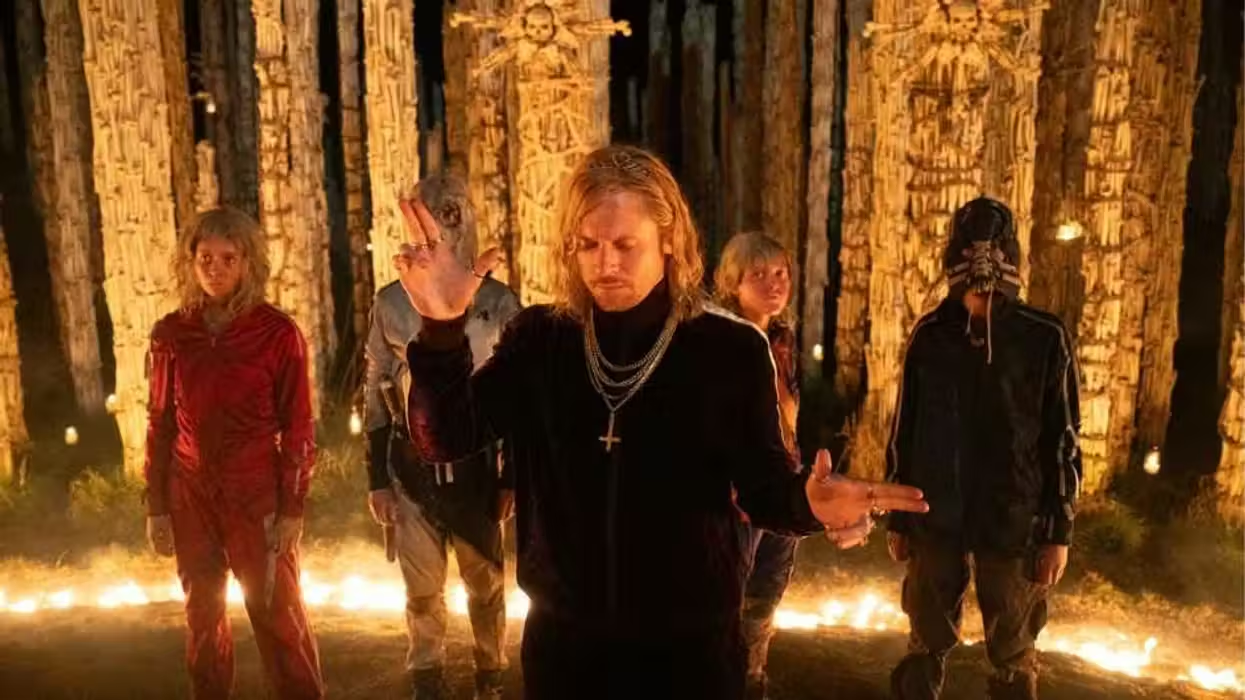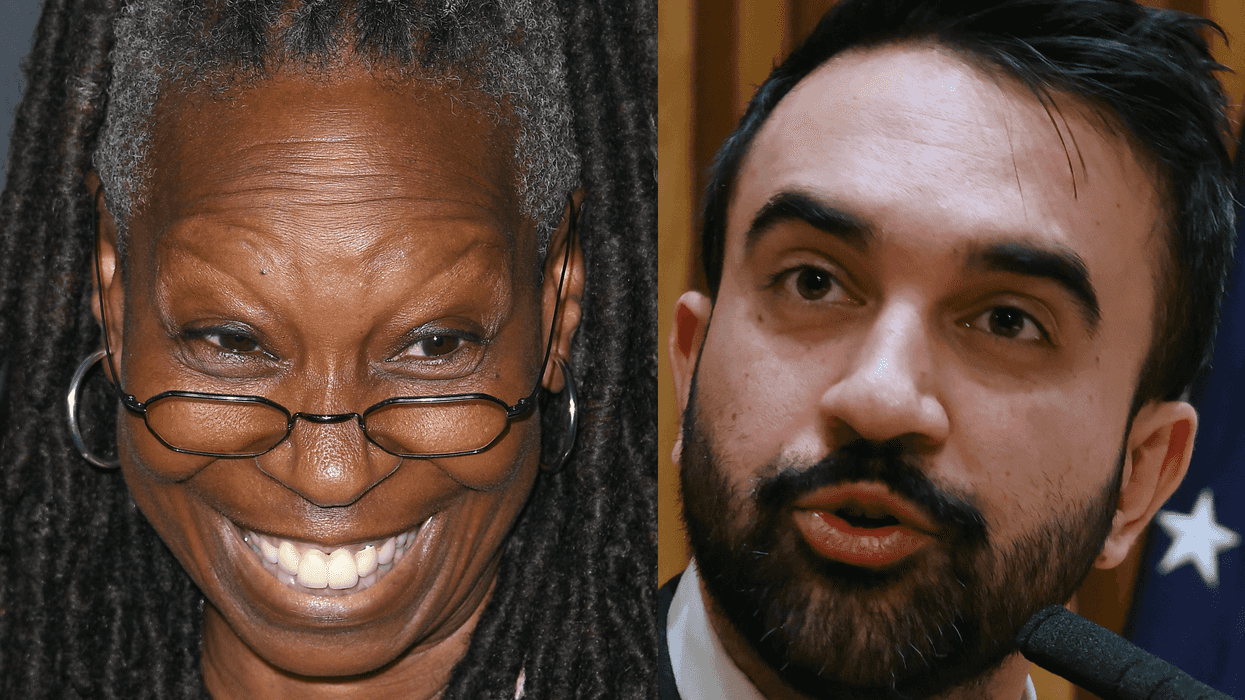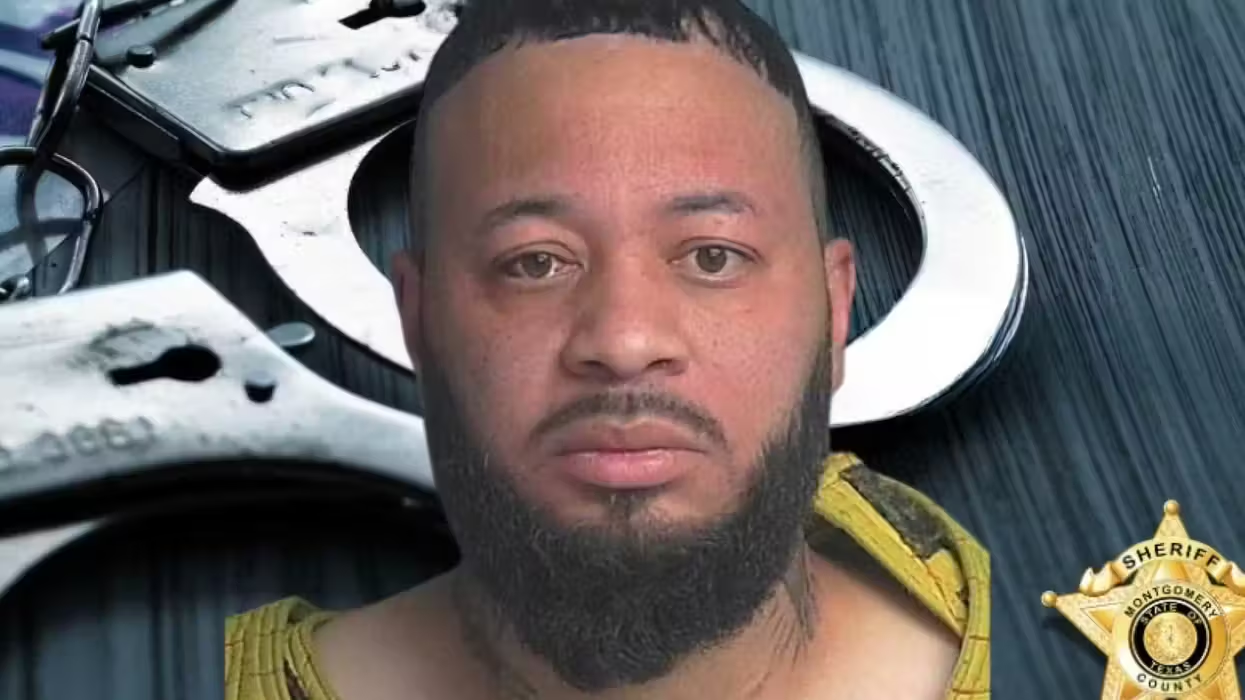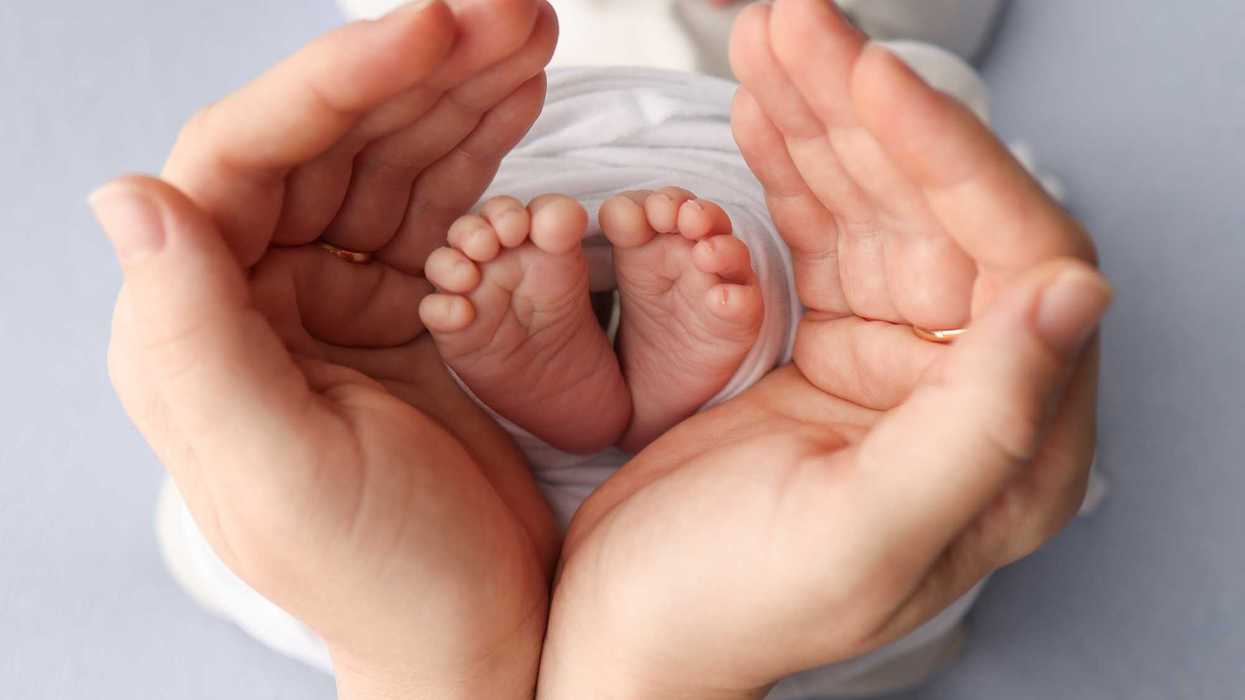
© 2026 Blaze Media LLC. All rights reserved.
Blaze Exclusive: First-Ever Music Video About the Holocaust Is a 'Call to Arms
February 22, 2012
"You almost extinguished us. You killed us. What do you want from us?"
Last November, The Blaze reported on the production of the first-ever music video about the Holocaust. The song, entitled "Rainbow in the Night," debuted January 27th to coincide with International Holocaust Remembrance Day.
"Rainbow in the Night" offers a powerful message in short form, specifically intended for a young post-millennial audience, as a reminder of the unspeakable cruelty inflicted on innocent men, women and children during the Holocaust. The video incorporates stunning cinematography, a heartrending score, and emotionally-wrought lyrics to produce a snapshot of the darkest time in the history of the Jewish people as seen through the eyes of a survivor.
The production, set against a backdrop of despair and hopelessness, reveals the emotional journey of an innocent child forced to leave his home for an extermination camp. After enduring the atrocities leveled against him by his captors, finally liberated, the child (now an adult in the video), recalls his journey. He also conveys the inspiration he felt upon reflecting on better days he hoped would come – all of which strengthened and sustained his resolve to survive.
Triumphantly culminating in the hope for a brighter future, "Rainbow in the Night," according to its producers, serves as a “euphoric tribute to the indomitable human spirit that enabled the Jewish people to survive against all odds,” as well as a “call to arms, to rekindle the spark of Jewish pride and unity among Jews worldwide as [they] continue to rebuild the generations that were destroyed by the Nazis.”
I had the pleasure of sitting down with the creators of "Rainbow in the Night," director Daniel Finkelman and composer-producer Cecelia Margules, to discuss the motivation behind their poignant rendition and to glean insight into their hopes for future generations, whose collective memory of this grim chapter in human history is now fading from view. "A rainbow represents hope," explained Cecelia, and "night was the Holocaust."
Filmed in New York, Krakow, and inside the Majdanek concentration camp, this first ever music video depicting the Holocaust was directed by Daniel, and includes a cast of approximately 60 men and women – both Jewish and non-Jewish – and over 800 Jewish children.
"This was not a set," explained Cecelia and Daniel. "It was the real place." These atrocities took place at Majdanek, and so the video captured the horrific and the emotional experience so vividly. Cecelia believes the haunting score, profound lyrics – performed by tenor Cantor Yaakov Lemmer – and visual imagery will convey the "tenacity" of the Jewish people who endured unthinkable tragedy and survived against all odds.
Cecelia ceded that while "we were decimated to a great extent," as a people, "we survived."
But like so many who share Jewish heritage, Daniel, too, was compelled to create this video for deeply personal reasons. For one, he is the grandson of Holocaust survivors and was profoundly inspired by the iconic film "Schindler's List."
Yet Daniel brings with him the added element of being a survivor himself, as he and his family lived in Tzfat, Israel, during the second Lebanon War. For those unfamiliar, Tzfat was ground zero in 2006 -- with some 4000 Katysusha rockets fired into northern Israel by Hezbollah, over 700 of them landed in Tzfat. Many civilians at the time time – especially those with large families and the elderly – were particularly vulnerable, lacking the ability to flee to safety.
Daniel recalled the devastation he witnessed as rockets and mortars fell directly into his own backyard.
Daniel, who is American-born, fortunately escaped through Jerusalem and returned to the U.S. so that he and his family could live in safety and security. He added that he is "in shock to this day," having lived through conditions one only reads about in newspapers. For Daniel, the war was perhaps the greatest catalyst for making "Rainbow in the Night," as he came to the haunting realization that his "life as a Jew in [his] own country is not stable."
He said the video is a message to those who would seek to destroy Israel and the Jewish people to: "Leave us alone."
"You almost extinguished us. You killed us. What do you want from us? What do you want Iran? What do you want Arab world?"
Cecelia, whose own mother was a Holocaust survivor from Poland, found this labor of love a cathartic experience. According to the composer, her mother spoke faithfully at schools and throughout the community in order to educate others about the history of the Holocaust. Cecelia drew inspiration from her mother, who wrote about the experience of returning to Poland in order to find her father's grave in the book "In Search of Ashes."
When asked why they think the Holocaust denial and anti-Semitism is on the rise, both Cecelia and Daniel looked to Iran, citing how even the likes of Mahmoud Ahmadinejad and his warped world-view is now entertained on a wide scale – even in the halls of academia.
As the conversation steered toward higher learning, Cecelia and Daniel also cited the abundance of anti-Israel sentiment by professors, activist groups and the BDS (boycott and divestment) campaign so prevalent on university campuses today. While many have come to expect such an environment in elite institutions like Columbia and Harvard, Cecelia ironically pointed out Brooklyn college – once a bedrock of a thriving Jewish community – where a professor was recently suspended, but later reinstated, after preaching anti-Semitism on a regular basis.
Another reason Daniel and Cecelia believe Holocaust denial and anti-Semitism is rising is because younger generations are less connected to their forebears than their predecessors were. Now, instead of having a close relative – a parent or grandparent – who survived the Holocaust, younger generations may only have a great-grandparent or distant relative affected by these events, if anyone at all. Thus, in their quest for assimilation, younger generations have abandoned their heritage.
"You want to remove yourself and not be burdened by this heavy past," explained Cecilia. She reminded that even as Hitler rose to power, many Jewish people in Germany considered themselves German, rather than Jewish first.
Cecelia, who wrote the piece last year for a Holocaust commemoration, said that while at times wrought with emotion, she found the process of creating "Rainbow in the Night" "invigorating."
"I feel good about what I did," she beamed.
When asked about the obstacles they encountered abroad while working on a project of this magnitude, Daniel and Cecelia noted that bureaucracy in the Polish government held up their permit to operate at one point, but that eventually the production was given a green light.
Historically, while there were indeed Poles who were opposed to the extermination of Jews, there were many others who stood by cheering heartily as entire families were led away to ghettos and death camps by the Nazis. Sadly, it was not uncommon to see a group of Polish men, women and children all too happy to take over the apartments and personal effects these victims were forced to leave behind.
In the spirit of accuracy, Daniel and Cecelia wished to capture such maddening moments from this snapshot in history. Some Polish cast members, however, took issue with their countrymen being portrayed in what they considered a negative light. This notion is quite apparent in the video.
While profoundly important, the subject matter is, of course, painful, and there were a number of moments throughout our conversation that caused the soul to swell with emotion – from the story of how a German nurse saved Cecelia's mother's life in the concentration camp, to the chilling accounts of the second Lebanon War Daniel and his family barely survived as rockets and mortar shells peppered their home.
The most profound moment of the interview, perhaps, came when Cecelia and Daniel explained the "miracle" that happened in Poland, when, after a massive downpour following the conclusion of shooting, a huge rainbow appeared directly over the Majdanek concentration camp. Everyone present, from the cantor to the cast and crew, beheld this magnificent and, indeed, rarest of sights. According to Daniel and Cecelia, even those not Jewish became believers. Even more incredibly, the actual rainbow was captured and is featured below, courtesy of photographer, Agnieszka Traczewska.
The newly released, full-length “Rainbow in the Night” video follows. Its production scale is enormous. While most music videos are up and running in a matter of days or weeks, "Rainbow in the Night" took nearly half-a-year to finish, and includes a cast of hundreds filmed on two continents. Please watch the video below and share with others:
On a final note, due to their hostile climate, university campuses are among the first places Cecelia and Daniel hope to have "Rainbow in the Night" aired. The video is also slated to appear at Holocaust education institutions and centers across the country. In terms of the future, Daniel and Cecilia hope this video will travel as far as Iran. Interestingly, one of the places this video is also widely available is on Neo-Nazi websites, which may be a perfect indication why this video-message is so sorely needed.
For more information on the video and on how you can become involved, please visit: Rainbow in the Night
Want to leave a tip?
We answer to you. Help keep our content free of advertisers and big tech censorship by leaving a tip today.
Want to join the conversation?
Already a subscriber?
more stories
Sign up for the Blaze newsletter
By signing up, you agree to our Privacy Policy and Terms of Use, and agree to receive content that may sometimes include advertisements. You may opt out at any time.
Related Content
© 2026 Blaze Media LLC. All rights reserved.
Get the stories that matter most delivered directly to your inbox.
By signing up, you agree to our Privacy Policy and Terms of Use, and agree to receive content that may sometimes include advertisements. You may opt out at any time.







